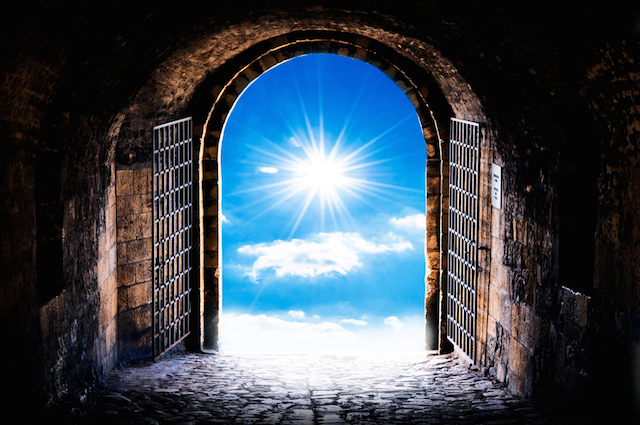 Submitted by Touch on
Submitted by Touch on

Every mental health worker knows about the DSM-V, a manual for defining disorders for the health system. It’s like a dictionary in which every psychological problem imaginable has a precise definition and a number. For years I’ve considered creating my own DSM-I of soul disorders, beginning with the wish to be normal, to be like everyone else—a soul-directed life moves us toward our individuality. I’m also thinking of a DSM-I of spirituality disorders. In case you have a problem that I include in this spiritual manual, a tendency to be too serious about certain things, know that I do this in a playful way. I will probably never publish my DSM-I.
Let’s look at some possible listings for the spirituality manual:
101.1 A tendency toward literalism. Maybe because religion for so long has emphasized belief and has confused theological stories with historical fact, even modern spiritual people have to watch out for any tendency to be too literal. Life changes overnight when you begin to appreciate the value of narrative, poetics, mythology, and imagery, when you discover that they take you deeper and put you on firmer ground than any literal, factual approach.
102.6 Finding pleasure in making moralistic judgments. Spiritual people of all stripes tend to judge others who don’t think the way they do. I have to watch out for this one, myself. Moralism starts with the feeling that you know what is right and wrong, based on your tradition or a book or a teacher. You expect others to follow your own simple system. I see this disorder as an emotional defense against really being moral, going through the sweaty process of sorting out values and subtle issues buried in ethical decisions.
110.7 An ingrained habit of gullibility. We spiritual people find it easy to believe in almost anything. Just look at any catalogue from a spiritual growth center and you will see what I mean. This long-standing tendency toward being gullible may come from a related disorder (11.7), a habit of not thinking things through, related to yet another disorder (116.9), not reading excellent sources, or (116.9a), just not reading.
121.2 The wish to escape from life’s complexity. Life is always challenging, complex, and shifting, on the move. It’s difficult to figure it all out and keep up with it. What a relief to find some simplifying system to make it all easier.
125.6 A carefully cultivated rosy picture of reality. You can quickly judge a spiritual approach by the way it treats the shadow side of life. Any effort to fend off the dark side, our tendency toward evil and immorality, and not see it in ourselves, is a form of delusion, spiritual delusion.
133.8 Finding comfort in one’s own group rather than identifying with the world community. In spiritual circles there is a lot of talk about community, but often it sounds more like a closed, defensive group. For a local community to be something other than a clique, it requires two things: truly individual members and a viewpoint that extends beyond itself, embracing the “other.”
144.2 Spiritual narcissism. For all our talk about community and service, we may easily see spiritual practice as a form of self-improvement. We may overlook the needs of the world or may fail to realize that an open heart is the best way to becoming an evolved person.
151.11 Anxiety about sexuality. Because spirituality aims high and beyond, it can interfere with our intimate physical and emotional lives. We may think of spirituality and ethics as controlling our sexuality rather than finding its joyful fulfillment.
166.66 Fixation in an earlier spiritual period of life. When your spirituality is alive and vital, it’s on the move. It changes and, one hopes, matures. Yet we all have elements that are stuck in earlier times in life. It’s helpful to revisit those times and explore them until they no longer hinder the full unfolding of your spirituality.
This is just a preview of what could be a long DSM-I covering your spiritual experience. It’s not just for the fundamentalist and traditional approaches but also the most recent and sophisticated spiritualities. I see this as a good checklist for myself. You can add your own items. I’ll remember to leave some blank pages. The idea is not to be negative and overly critical, but to reflect on your practice so it remains alive, intelligent, and joyful.
Author: Thomas Moore
http://spiritualityhealth.com/articles/care-soul-spiritual-disorders
-*-*-*-*-*-
- 819 reads